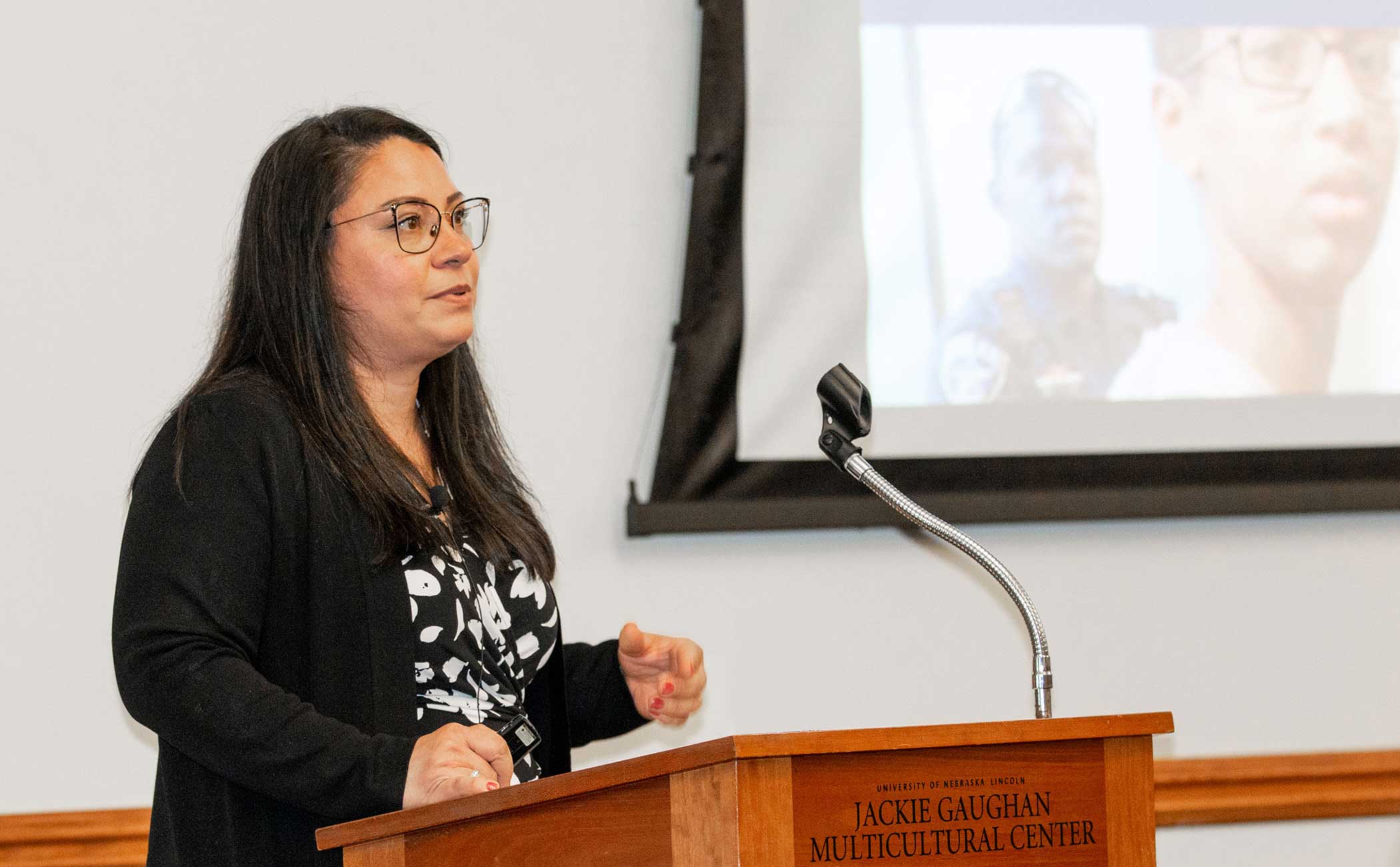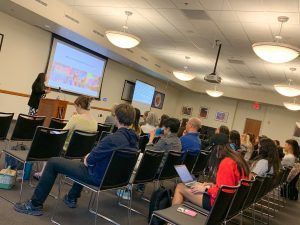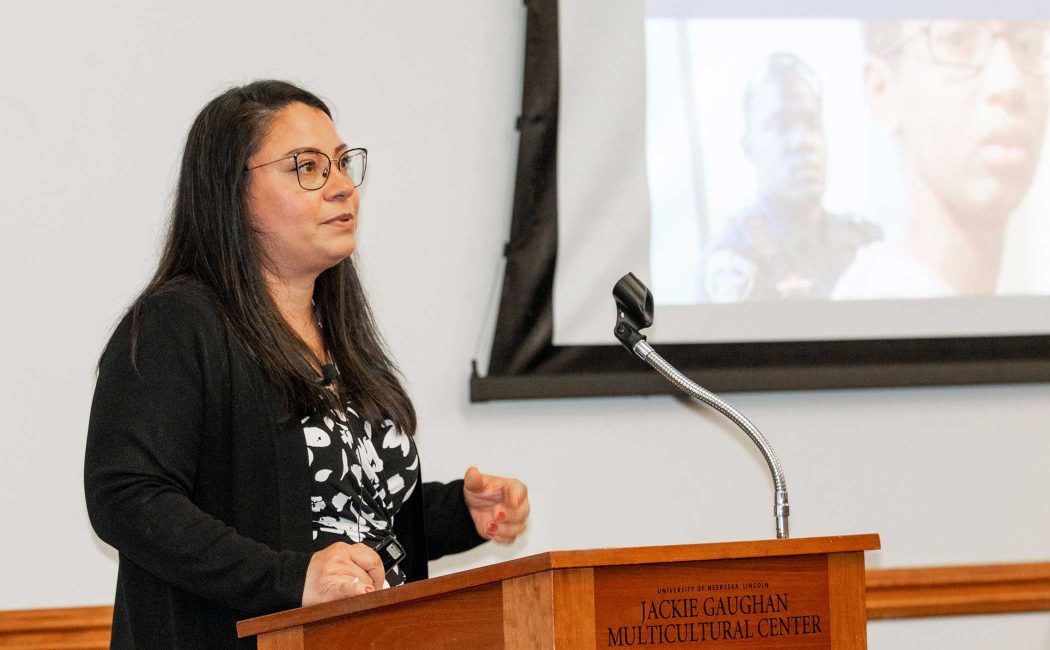
Many racially minoritized youth do not have equal access to the benefits of being young, according to a University of Michigan researcher.
Deborah Rivas-Drake, Stephanie J. Rowley Collegiate Professor of Education and Professor of Psychology at the University of Michigan, said during her May 3 keynote presentation at the Jackie Gaughan Multicultural Center that youth of color are frequently dismissed or marginalized — often because of how they speak and express themselves. That generates an “unequal, social-emotional toll” on them from experiencing racial and immigration injustices.
As a result, she said, things become more complicated for adolescents trying to navigate issues related to race and ethnicity.
“I think about it not only as an educator, but also as a parent, and what it is like for young people today, wondering why their presence and legitimacy are questioned,” said Rivas-Drake, director of the Contexts of Academic + Socioemotional Adjustment (CASA) Lab.
Her presentation, titled “Promoting Socioemotional Development in Racially Minoritized Youth,” was a Distinguished Visiting Scholar Keynote event co-sponsored by the Nebraska Center for Research on Children, Youth, Families and Schools and the College of Education and Human Sciences, with support from the CYFS Diversity, Equity, Inclusion and Belonging Committee.

One key tool to help youth of color resist and respond to such marginalization, Rivas-Drake said, is social-emotional learning (SEL) — the process of developing the self-awareness, self-control and interpersonal skills that are vital for school, work and life in general.
However, in communities that face daily injustices, she said, it is crucial to consider historical factors, such as inequities in education, health and social development.
One potential solution, Rivas-Drake said, is transformative social-emotional learning, a form of SEL implementation in which young people and adults build strong, respectful and lasting relationships to engage in co-learning, and to encourage youth to engage in collective projects and activities that contribute to well-being and justice.
Rivas-Drake reviewed a case study whose data were drawn from schools in Chicago that found practitioners had to stretch and modify curriculum and instructional practices to help students identify, understand and address social injustice.
Four domains she noted that were prevalent in transformative SEL were awareness of diverse ethnic and racial identities and experiences; acknowledging and addressing racial injustice; acknowledging and addressing xenophobia; and supporting student voice, agency and power.
Among these domains, results from a teacher survey showed that fewer teachers engage in practices that specifically address racial injustice and xenophobia in the classroom.
Rivas-Drake emphasized the need to better understand the knowledge, resources and support teachers require to be able to affirm students’ identities, draw upon their lived experiences and address their urgent needs.
“It is important to provide kids the tools they need to navigate messages that they’re less worthy not just in youth but also in adults, including families and caregivers, as well as in school,” she said.
Photo gallery






